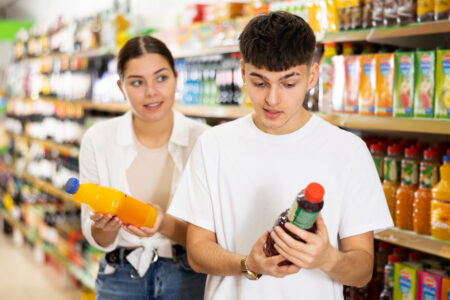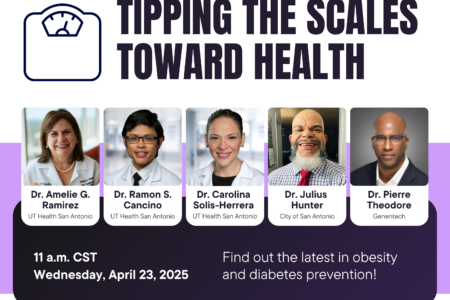Share On Social!
Ricardo Rocha believes anyone can be a hero and improve local healthy food access.
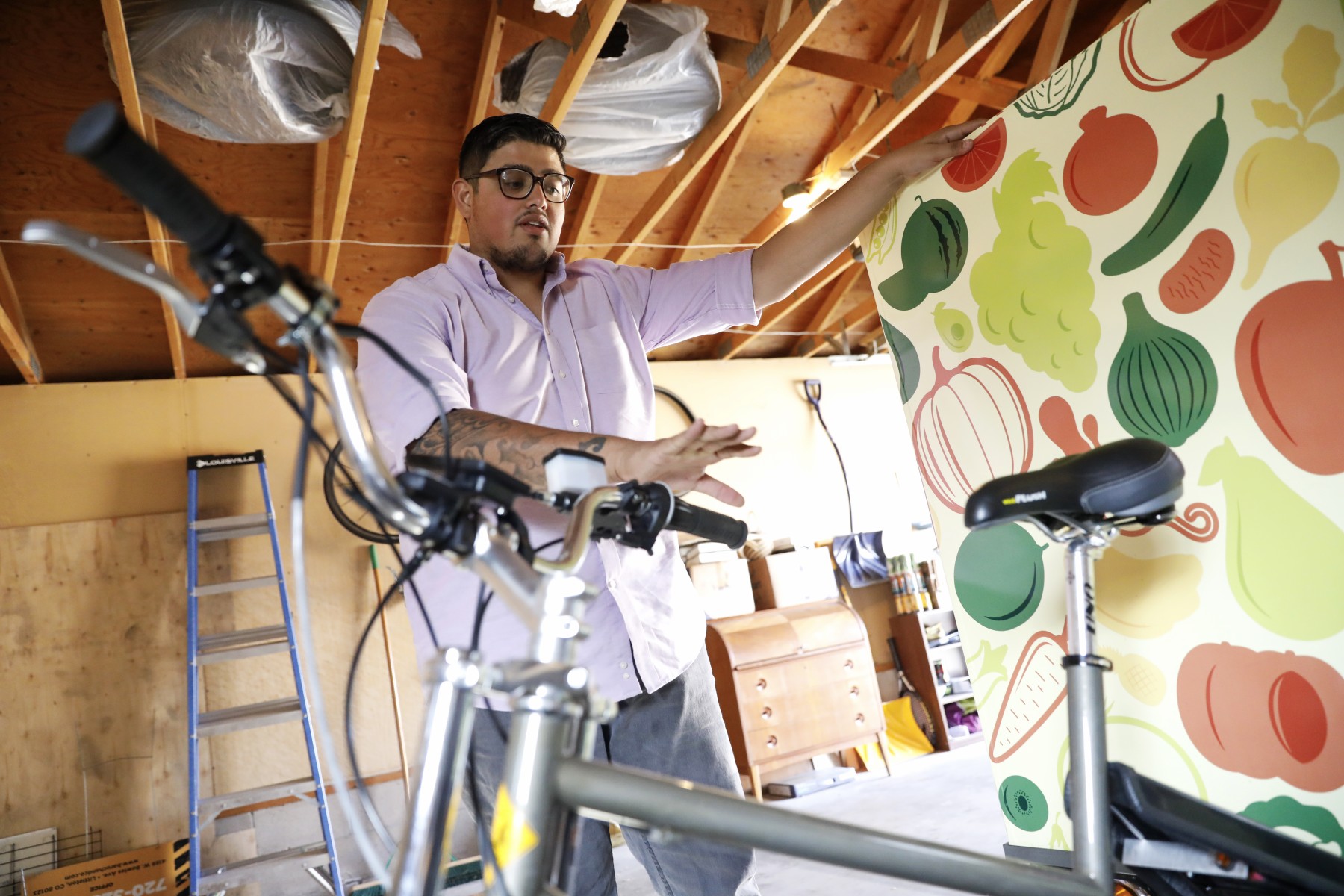
Even someone like him. Someone who grew up in a poor family that toiled to put food on the table in Mexico. Someone who immigrated to the deserts of New Mexico, and eventually Denver (31% Latino). Someone who was a struggling, undocumented high-school student.
“I was not doing very well in high school. Someone there told me about the College Assistance Migrant Program,” Rocha said. “That helped get me into [Metropolitan State University of Denver],” Rocha said. “I learned a lot about what it really meant to belong somewhere.”
Rocha wanted to do more than “belong somewhere.” He wanted to make that somewhere better.
So, when he noticed many people trying and failing to find healthy food in his Denver neighborhood, he had a desire to deliver fresh produce and groceries to people who needed them the most.
But how?
‘I Didn’t Understand How that Could Be’
After participating in the College Assistance Migrant Program and working with the Colorado Latino Leadership, Advocacy, and Research Organization (CLLARO), Rocha began to clearly see Latino health inequities.
“Coming from where I did, [inequity] was an everyday part of life, it’s just something you think is,” Rocha said. “When I came here and I got into college and I was living my life [in Denver] I would still see some of the things from when I was younger and I didn’t understand how that could be.”
One big issue he saw was local food deserts—an urban area where it’s hard to buy affordable or quality fresh food.
In 2016, a Denver County report found that almost half of the low- and middle-income neighborhoods in Denver were considered food deserts. One in every six people were food insecure.
“Most people believe it’s just a choice you have,” Rocha told 9news.com. “A choice to go to a grocery store, to eat healthy, to live an active lifestyle. But that’s not the case and I’ve experienced that firsthand.”
At the time, Rocha was working as a translator for the nonprofit Denver Food Rescue.
He was helping with negotiations between Denver Food Rescue and the Save-A-Lot grocery store chain.
“I was trying to help them donate food to the Rescue that they would sometimes throw out as waste,” he said. “They wanted to try something else out instead. How can we get this food to the people who need it most?”
How? Rocha and Denver Food Rescue had an idea.
Abarrotes Bondadosa (Goodness Groceries)
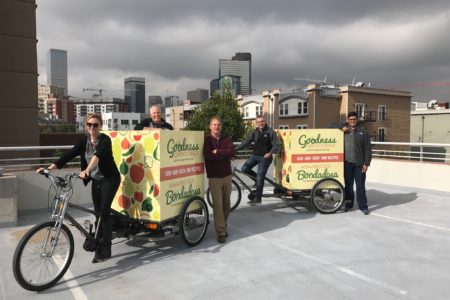
Rocha wanted to start a business—Abarrotes Bondadosa (Goodness Groceries)—to deliver groceries from Save-A-Lot by motorized tricycles to four of the lowest-income neighborhoods in Denver.
It’s goal? To make it easy for Latinos and all residents to get grocery items delivered to their home. They started Abarrotes with a simple “business model.” Rocha and his team were the beneficiaries of three electric, motorized tricycles. Denver Food Rescue bought the bikes after researching the most-cost effective means of transportation with the lowest overhead.
Abarrotes started in November 2017.
The delivery team takes grocery orders by phone or online (in both English or Spanish). People can pay with cash, check, credit card, or SNAP benefits. There is no cost for any kind of membership or for the delivery fees; that is free and is what makes the program especially equitable.
“When we started out there was me and just another two groups on the bikes,” Rocha said. “Even though we were small, the response from the community was great. They saw what we were doing and people were grateful for the service.”
Abarrotes Bondadosa Takes to the Streets
The program is growing in size and impact, Rocha said. They have a website.
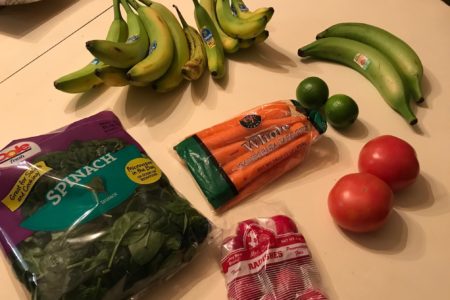
“I think there are times when people understand [food insecurity] exists, but they don’t have a lot of real ways that they can make an impact,” Rocha said. “With Abarrotes Bondadosa, we found a real way to help people who need help and make a difference in their health and their lives.”
Families with children are especially benefiting.
“You can’t go to school on an empty stomach,” Rocha told 9news.com. “You can’t perform well in work and meet expectations when you are so preoccupied with what’s sitting in front of your dinner table.”
Rocha hopes to soon expand the program to a dozen employees in the next 12-18 months. He also wants to expand their reach.
“What we’re doing is important,” he said. “Because we have the support of some good partners and the community, I think we can grow the program to as large as we need to in the future. I know that’s the best way to tackle a problem as serious as food insecurity.”
Update: In November 2018, the program announced on its blog that it will continue expanding its free grocery delivery service in the Denver Metro Area thanks to a $300,000 grant from the Colorado Health Foundation. With this funding, the program aims to serve over 6,000 individuals, including SNAP recipients, and deliver over 10,000 grocery orders.
Here’s how you can learn about more amazing healthy food changes:
Explore More:
Healthy FoodBy The Numbers
1
Supermarket
for every Latino neighborhood, compared to 3 for every non-Latino neighborhood
This success story was produced by Salud America! with support from the Robert Wood Johnson Foundation.
The stories are intended for educational and informative purposes. References to specific policymakers, individuals, schools, policies, or companies have been included solely to advance these purposes and do not constitute an endorsement, sponsorship, or recommendation. Stories are based on and told by real community members and are the opinions and views of the individuals whose stories are told. Organization and activities described were not supported by Salud America! or the Robert Wood Johnson Foundation and do not necessarily represent the views of Salud America! or the Robert Wood Johnson Foundation.

